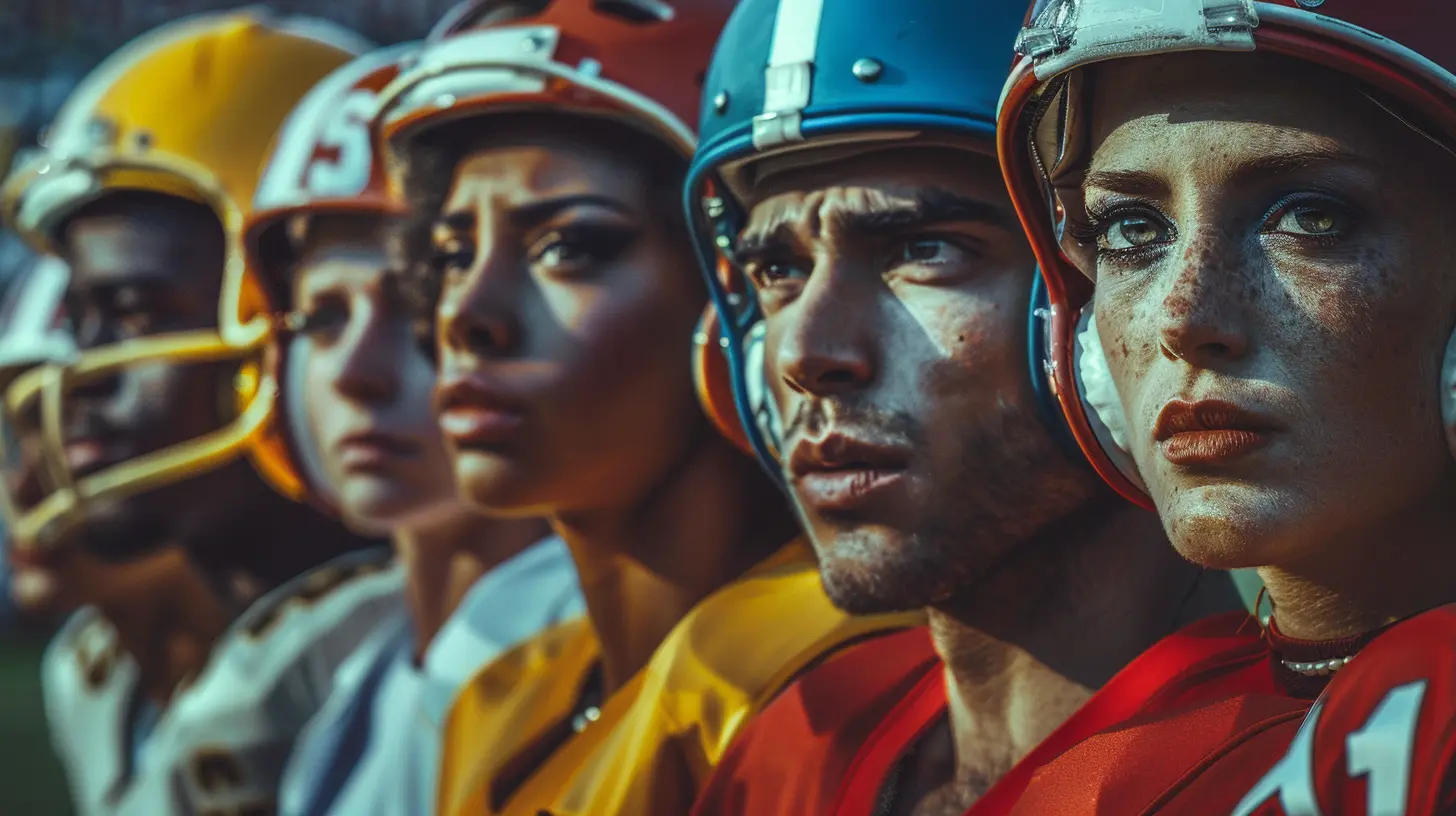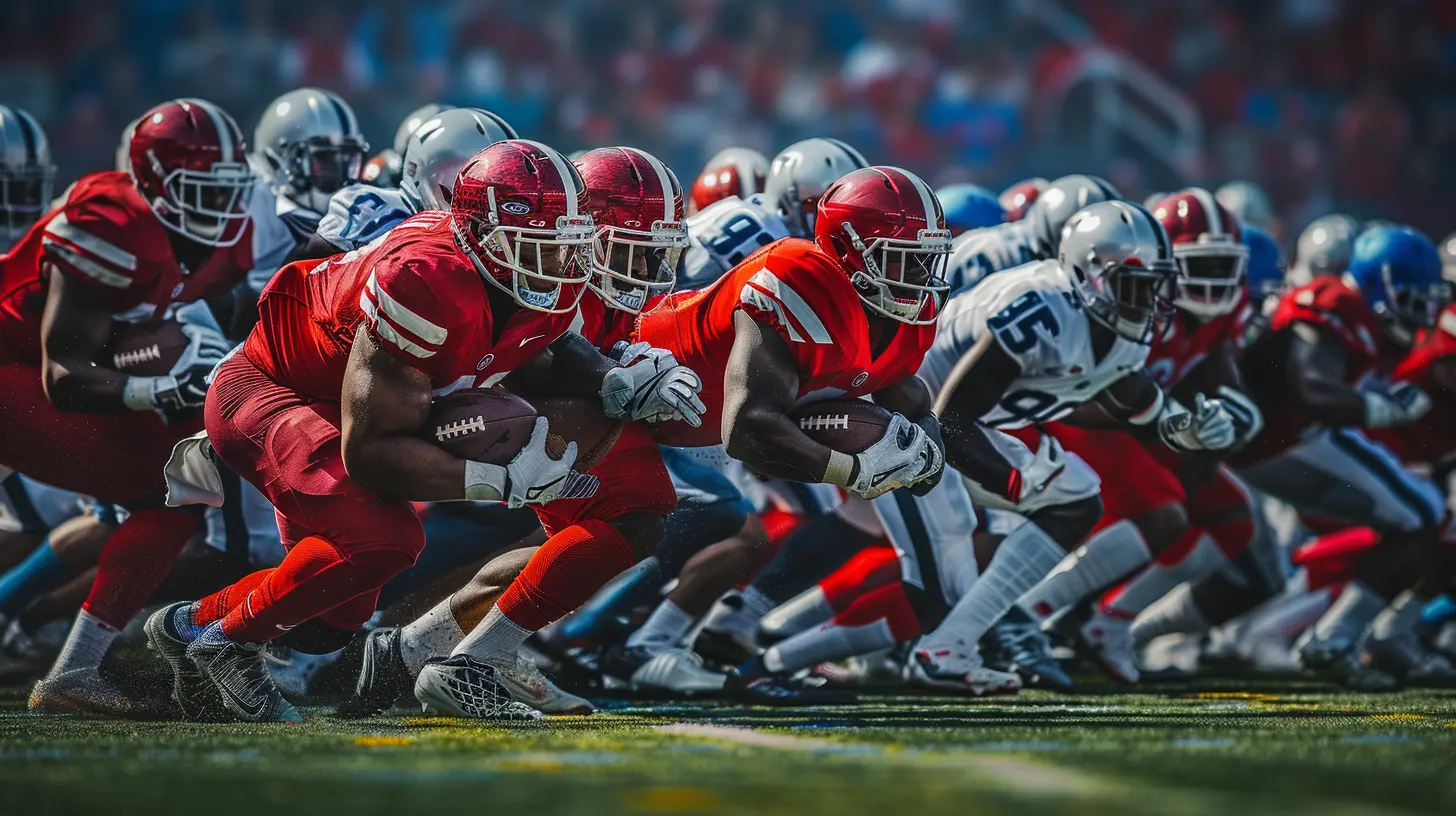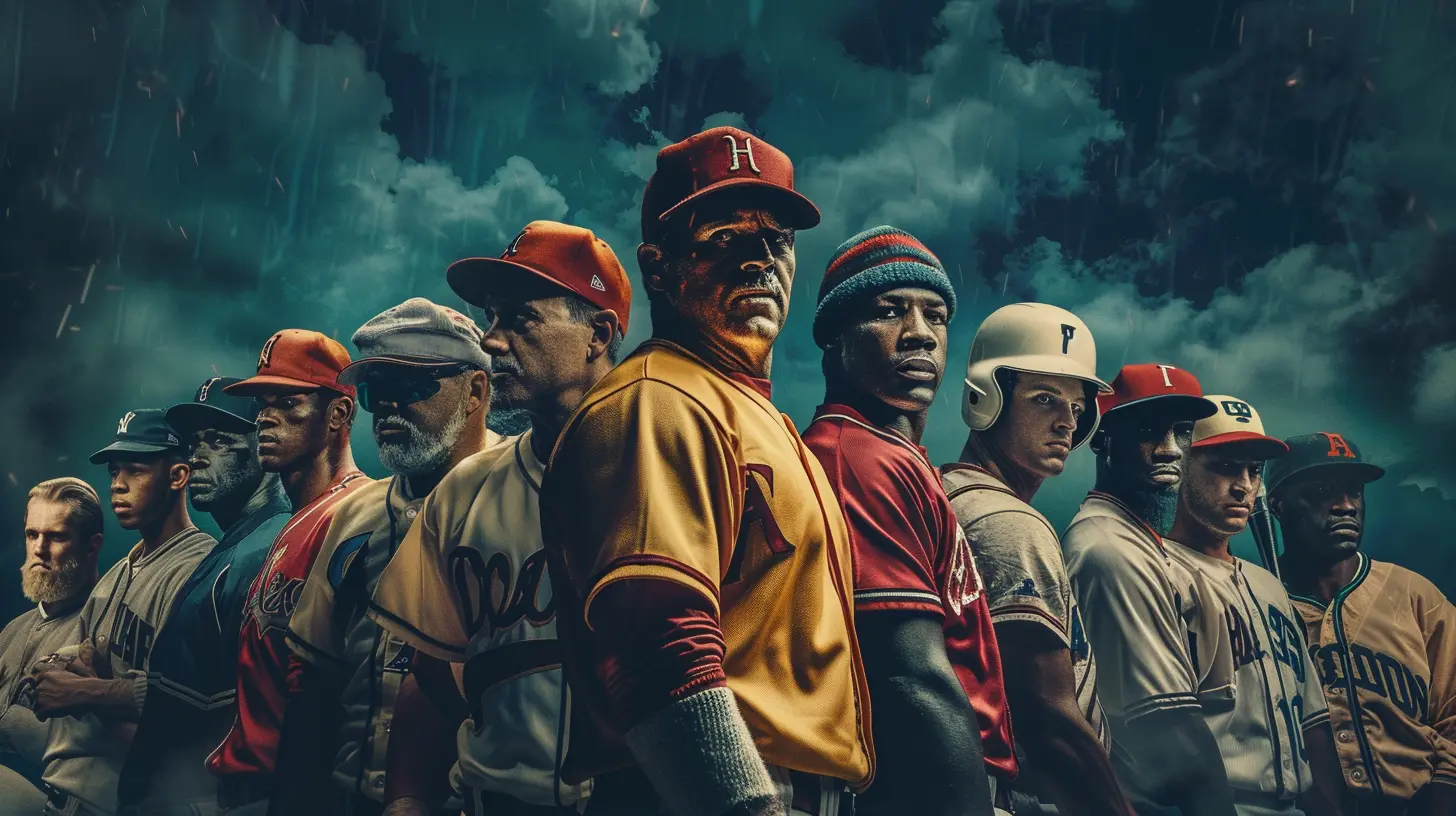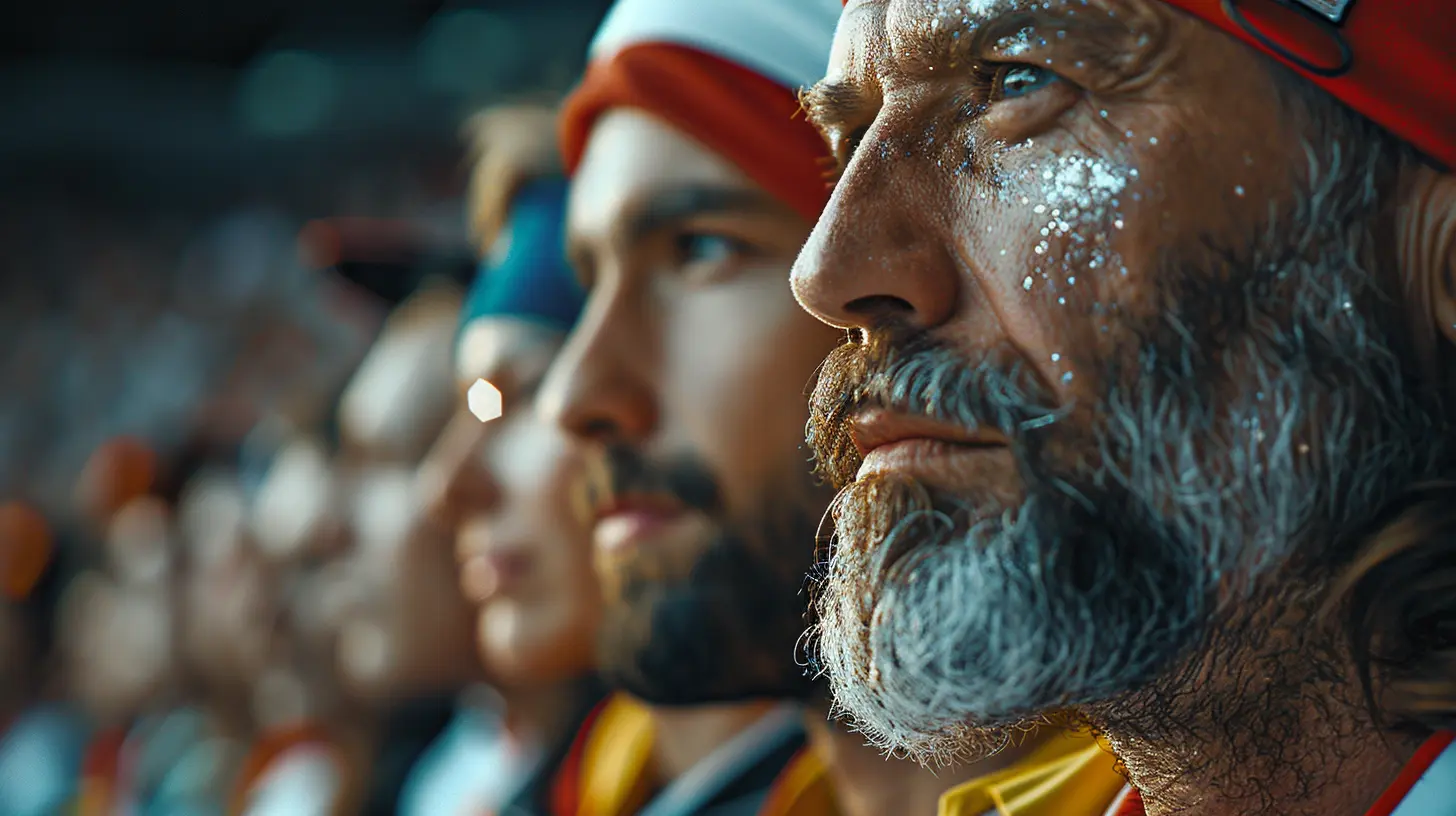Beyond the Field: The Human Side of Hall of Fame Athletes
9 September 2025
When we think of Hall of Fame athletes, we picture the dazzling moments—last-second game-winners, record-breaking performances, and championship celebrations. But behind the highlight reels and trophy cases are real people with struggles, emotions, and personal stories that often go unnoticed.
What makes these athletes truly special isn’t just their physical ability—it’s their relentless drive, resilience, and the way they impact lives beyond the scoreboard. Let’s dive into the human side of some of the greatest sports legends of all time.
The Struggles Behind the Glory
Hall of Famers may seem superhuman on the field, but in reality, they face the same challenges as the rest of us—sometimes even more. From financial struggles to personal tragedies, their road to greatness is often paved with obstacles.Overcoming Personal Hardships
Many of the greatest athletes had to fight through adversity long before they became household names. Some grew up in poverty, while others dealt with family tragedies or health issues.Take Michael Jordan, for example. Before becoming a six-time NBA champion, he was cut from his high school varsity team. That moment could have broken his spirit, but instead, it fueled his legendary work ethic. Stories like his prove that failure isn’t the end—it’s often just the beginning of something greater.
Then there’s Serena Williams, who battled racism and gender bias throughout her career. Growing up in Compton, California, she faced countless obstacles but never let them define her. Instead, she used them as motivation to become one of the most dominant tennis players of all time.
Mental Health Battles
We often see athletes at their best, but few talk about the mental toll of professional sports. The pressure to perform, endless scrutiny, and fear of failure can be overwhelming.Simone Biles, one of the greatest gymnasts in history, made headlines when she prioritized her mental health at the 2021 Olympics. Her decision sparked an important conversation about the psychological well-being of athletes. Even legends like Olympic swimmer Michael Phelps have opened up about battling depression and anxiety.
Their stories serve as powerful reminders that success isn’t just about physical talent—it’s also about mental endurance.
Life Beyond the Game
A professional sports career is temporary, but the impact an athlete makes can last a lifetime. Many Hall of Famers use their platform to make a difference far beyond their sport.Philanthropy and Giving Back
Some of the greatest athletes recognize the importance of giving back. LeBron James, for instance, didn’t just become a basketball icon—he became a force for social change. From opening a school for underprivileged children to advocating for racial equality, his impact reaches far beyond the court.Similarly, NFL legend Walter Payton dedicated much of his life to charity work, leading to the creation of the Walter Payton NFL Man of the Year Award, which honors players who make exceptional contributions to their communities.
Business Ventures and Second Careers
Not all athletes retire quietly. Many transition into successful careers in business, media, or coaching.Magic Johnson is a prime example. After his legendary basketball career, he built a business empire, investing in movie theaters, real estate, and even sports franchises.
On the other hand, some athletes channel their expertise into media careers. Tony Romo, a former NFL quarterback, became one of the most insightful sports commentators, proving that knowledge of the game can open new doors.
These stories show that success doesn’t stop after retirement—it just takes on a different form.
Relationships and Family Life
While we see athletes dominate on the field, their biggest victories often happen behind the scenes—with their families, friends, and loved ones.Balancing Fame and Family
Being a world-class athlete can take a toll on personal relationships. The intense training schedules, constant travel, and media attention make it tough to maintain a normal home life.Yet, many Hall of Famers have managed to find balance. Kobe Bryant, for example, was not just a basketball legend but also a devoted father. He spent his post-retirement years focusing on his family and coaching his daughters in basketball, proving that his greatest role wasn’t just as a player—it was as a dad.
Similarly, Derek Jeter, one of baseball’s biggest stars, maintained a notoriously private personal life but always emphasized the importance of family over fame.
The Importance of Support Systems
No athlete achieves greatness alone. Behind every Hall of Famer is a support system of coaches, mentors, and, most importantly, family members who believed in them even when they doubted themselves.Tennis legends Venus and Serena Williams had their father, Richard Williams, who coached them from a young age despite having little experience in the sport. His unwavering belief in their potential helped shape two of the greatest athletes of all time.
Athletes may seem like lone warriors on the field, but it’s the people behind the scenes who often make their success possible.
Legacy: More Than Just Statistics
At the end of the day, an athlete’s true legacy isn’t defined by their stats or championship rings—it’s about the lives they touch along the way.Inspiring Future Generations
Great athletes don’t just break records; they break barriers and inspire others to chase their dreams.Jackie Robinson didn’t just play baseball—he changed the game forever by breaking the color barrier in Major League Baseball. His courage paved the way for countless African-American athletes to follow.
Muhammad Ali wasn’t just a champion in the boxing ring; he was a champion for civil rights and social justice. His willingness to stand up for his beliefs made him a global icon.
Leaving an Impact That Lasts
Some athletes go beyond being remembered for their plays; they leave a lasting cultural impact.Michael Jordan didn’t just redefine basketball—he redefined sports marketing with his Air Jordan brand, influencing generations of athletes and sneaker culture.
Meanwhile, Pelé, often regarded as the greatest soccer player of all time, used his platform to promote peace and unity through the sport. His influence was so powerful that even war-torn nations called temporary ceasefires just to watch him play.
Their greatness wasn’t just about what they did in their sport—it was about how they changed the world.
Final Thoughts
Hall of Fame athletes aren’t just sports icons; they’re human beings with stories of struggle, resilience, and triumph beyond the game. They remind us that success isn’t just about talent—it’s about heart, determination, and the impact we leave on others.So, the next time you watch a game-winning shot or a record-breaking performance, remember: there’s always more to the story than what happens on the field.
all images in this post were generated using AI tools
Category:
Hall Of FameAuthor:

Uziel Franco
Discussion
rate this article
1 comments
Morgan Good
This article beautifully highlights the often overlooked humanity of Hall of Fame athletes, reminding us that their stories extend far beyond their impressive records and achievements.
September 23, 2025 at 10:35 AM

Uziel Franco
Thank you! I'm glad you found the article impactful in showcasing the human stories behind these exceptional athletes.


![The Making of a Legend: How [Player Name] Became a Household Name](/pictures/blog/small/the-making-of-a-legend-how-player-name-became-a-household-name_3.webp)